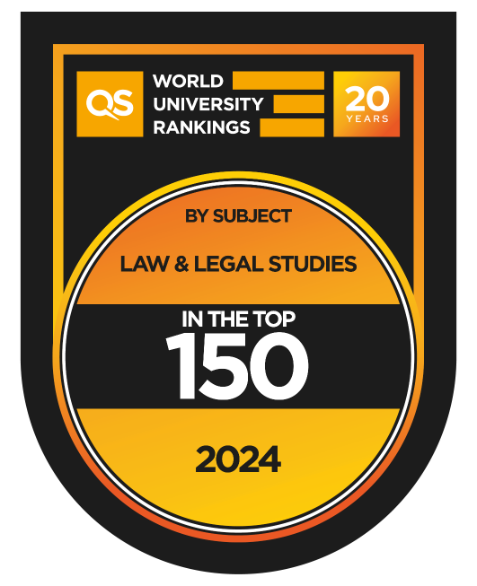-
Courses

Courses
Choosing a course is one of the most important decisions you'll ever make! View our courses and see what our students and lecturers have to say about the courses you are interested in at the links below.
-
University Life

University Life
Each year more than 4,000 choose University of Galway as their University of choice. Find out what life at University of Galway is all about here.
-
About University of Galway

About University of Galway
Since 1845, University of Galway has been sharing the highest quality teaching and research with Ireland and the world. Find out what makes our University so special – from our distinguished history to the latest news and campus developments.
-
Colleges & Schools

Colleges & Schools
University of Galway has earned international recognition as a research-led university with a commitment to top quality teaching across a range of key areas of expertise.
-
Research & Innovation

Research & Innovation
University of Galway’s vibrant research community take on some of the most pressing challenges of our times.
-
Business & Industry

Guiding Breakthrough Research at University of Galway
We explore and facilitate commercial opportunities for the research community at University of Galway, as well as facilitating industry partnership.
-
Alumni & Friends

Alumni & Friends
There are 128,000 University of Galway alumni worldwide. Stay connected to your alumni community! Join our social networks and update your details online.
-
Community Engagement

Community Engagement
At University of Galway, we believe that the best learning takes place when you apply what you learn in a real world context. That's why many of our courses include work placements or community projects.
LLM (General)
Course Overview
The LLM (General) is one of a suite of LLM programmes offered by the School of Law at University of Galway. This LLM can be taken on a full-time basis over one year or part-time over two years. It is a taught programme designed to give students complete flexibility in their selecton of modules and topic for their minor thesis. The LLM (General) programme allows students to select modules to suit their own interests and facilitate their specific career objectives. Students can select modules from the full range available for taught LLM programmes offered within the School of Law, the Irish Centre for Human Rights and the Centre for Disability Law and Policy. This programme is designed for students seeking an advanced postgraduate degree but who do not wish to specialise in a particular area of law.
Course Highlights:
- A tailored master's programme which facilitates module choice across the School of Law and research centres to maximise students opportunity to pursue personal career goals.
- Expert lecturers deliver this programme through small group seminars with guest talks from leading practitioners. Students also have the opportunity to attend and present at key conferences, nationally and internationally.
- International field trips enable students to see the law in action in a global context.
- Skills development is an important element of this programme with seminars focusing on critical thinking, analytical skills, research skills and professional writing skills.
- Career support is provided through professional workshops concentrating on students CV and interview skills. Careers in Law Week also provides an opportunity to meet partners from leading law firms.
- Diverse modules from EU Competition Law, Counter-Terrorism and Human Rights, Current Issues in Internet Law to Sentencing and Penal Policy.
- Personalised thesis provides students the opportunity to identify a thesis topic based on an area of law that interests them and furthers their specific career goals.
- Assessment is primarily through research papers, presentations and minor thesis rather than exams.
Applications and Selections
Applications are made online via the University of Galway Postgraduate Applications System. Entry to the course is based on academic achievement as set out above and a personal statement. On occasions, interviews may also be carried out to determine the applicant’s suitability for the course. Places will be allocated on a conditional basis pending receipt of all required and verified supporting documentation.
Who Teaches this Course

School of Law
TB407
Arts/Science Building
NUI Galway
View Profile

Dept. of Law
Room 411 Tower 2 Concourse
University of Galway
View Profile

Dept. of Law
Tower 2, Arts/Science Building
NUI Galway
View Profile

503, Tower 2
School of Law
University of Galway
View Profile

No. 9 Distillery Road
University of Galway
View Profile

Tower 2
Arts/Science Concourse
School of Law
University of Galway
View Profile

Dept. of Law
Tower 2 Arts Science Building
University of Galway
View Profile
Requirements and Assessment
Key Facts
Entry Requirements
The criteria for admission to this programme is as follows:
- An approved Second Class Honours Degree, Grade 1 (2.1, Level 8) in law, or an inter-disciplinary degree in which law was a major component.
- Applicants awarded a Graduate Diploma in Law may be considered but will be admitted only where they demonstrate a strong academic performance in both the undergraduate degree and diploma.
- In exceptional circumstances, an applicant holding a degree in another discipline or a degree of less than an approved Second Class Honours Degree, Grade 1 (H2.1) standard may be considered where they have relevant professional experience in law.
- All applicants, whose first language is not English, must present one of the following qualifications in the English language. IELTS (6.5 overall), TOEFL (8) and Pearson PTE (61).
- International students should refer to the country specific information section of the International Office website.
Additional Requirements
Recognition of Prior Learning (RPL)
In exceptional circumstances, an applicant holding a degree in another discipline or a degree of less than an approved Second-Class Honours Degree, Grade 1 (H2.1) standard may be considered where they have relevant professional experience in law.
Duration
1 year, full-time; 2 years, part-time
Next start date
September 2025
A Level Grades ()
Average intake
15
QQI/FET FETAC Entry Routes
Closing Date
Please view the offer rounds website.
NFQ level
9
Mode of study
ECTS weighting
Award
LLM
CAO
Course code
LLM-GEN
Course Outline
Semester 1
30 ECTS credits of modules
Semester 2
30 ECTS credits of modules
Semester 3
(Summer) Minor Thesis (30 ECTS credits)
Students can select modules from the full range of modules available on taught LLM programmes offered within the School of Law, the Irish Centre for Human Rights and the Centre for Disability Law and Policy.
Course and module offerings and details may be subject to change, but may include the following optional modules. Click on 'Year 1 (90 Credits)' on the bottom of this webpage to view description of each module.
- EU Competition Law (10 credits)
- International Commercial Property Law (10 credits)
- International Business Law Moot (10 credits)
- Legal Skills: Commercial Practice, Advocacy and Dispute Resolution (10 credits)
- Advanced Intellectual Property Law and Development (10 credits)
- Advanced Comparative Law (10 credits)
- Commercial Law in Context (10 credits)
- EU External Relations Law (10 credits)
- Advanced Legal Research & Method (10 credits)
- Advocacy, Activism and Public Interest Law (10 credits)
- Sentencing & Penal Policy (10 credits)
- Medical Device Law and Regulation (10 credits)
- Crime and Disorder (10 credits)
- Foundational Theoretical Framework in Disability Law and Policy (10 credits)
- Mental Health Law and Policy (10 credits)
- Regional Disability Law and Policy (10 credits)
- Contemporary Challenges in Disability Law and Policy (10 credits)
- International Disability Human Rights Clinic (10 credits)
- Advocacy and Access to Justice (10 credits)
- Inclusive Education Law and Policy (10 credits)
- Law and Policy on Independent Living (10 credits)
- Legal Capacity Law and Policy (10 credits)
- International Human Rights Law (10 credits)
- Public International Law (10 credits)
- International Criminal Law (10 credits)
- International Humanitarian Law (10 credits)
- Contemporary Issues in International Migration Law (10 credits)
- European Migration Law (5 credits)
- Transnational Lawyering (5 credits)
- International Human Rights Law Clinic (10 credits)
- Counter-Terrorism and Human Rights (5 credits)
- International Peace Operations (10 credits)
- Gender and Human Rights (10 credits)
- Transitional Justice (10 credits)
- Contemporary Issues in Human Rights III (5 credits)
- Business and Human Rights 2 (10 credits)
- International Refugee Law (10 credits)
- Human Rights and Global Governance (5 credits)
- European Convention on Human Rights: Law and Politics (10 credits)
- The Common European Asylum System (5 credits)
- International Child Rights (5 credits)
- Procedure Before International Criminal Courts (5 credits)
- Minority Rights (5 credits)
- Islam and Human Rights I (5 credits)
Minor Thesis
Students are required to complete a minor thesis (15,000 words). The thesis allows students to conduct supervised research in an area of their choosing. Students will receive support and guidance from their supervisor on how to identify a research topic, conducting the research and writing up the minor thesis.
Curriculum Information
Curriculum information relates to the current academic year (in most cases).Course and module offerings and details may be subject to change.
Glossary of Terms
- Credits
- You must earn a defined number of credits (aka ECTS) to complete each year of your course. You do this by taking all of its required modules as well as the correct number of optional modules to obtain that year's total number of credits.
- Module
- An examinable portion of a subject or course, for which you attend lectures and/or tutorials and carry out assignments. E.g. Algebra and Calculus could be modules within the subject Mathematics. Each module has a unique module code eg. MA140.
- Subject
- Some courses allow you to choose subjects, where related modules are grouped together. Subjects have their own required number of credits, so you must take all that subject's required modules and may also need to obtain the remainder of the subject's total credits by choosing from its available optional modules.
- Optional
- A module you may choose to study.
- Required
- A module that you must study if you choose this course (or subject).
- Required Core Subject
- A subject you must study because it's integral to that course.
- Semester
- Most courses have 2 semesters (aka terms) per year, so a three-year course will have six semesters in total. For clarity, this page will refer to the first semester of year 2 as 'Semester 3'.
Year 1 (90 Credits)
OptionalLW561: Mental Health Law and Policy - 10 Credits - Semester 1OptionalLW553: Inclusive Education Law and Policy - 10 Credits - Semester 1
OptionalLW551: Contemporary Challenges in Disability Law and Policy - 10 Credits - Semester 1
OptionalLW562: Regional Disability Law and Policy - 10 Credits - Semester 1
OptionalLW550: Advocacy and Access to Justice - 10 Credits - Semester 1
OptionalLW5201: EU Competition Law - 10 Credits - Semester 1
OptionalLW5205: Advanced Intellectual Property Law and Development - 10 Credits - Semester 1
OptionalLW5203: Advanced Comparative Law - 10 Credits - Semester 1
OptionalLW5105: Contemporary Issues in International Migration Law - 10 Credits - Semester 1
OptionalLW5204: International Commercial Property Law - 10 Credits - Semester 1
OptionalLW5107: International Child Rights - 5 Credits - Semester 1
OptionalLW5206: Global Issues in Contemporary Labour Law - 10 Credits - Semester 1
OptionalLW552: Foundational Theoretical Framework in Disability Law and Policy - 10 Credits - Semester 1
OptionalLW5208: European Consumer Law and Policy - 10 Credits - Semester 1
OptionalLW5101: International Disability Human Rights Clinic - 10 Credits - Semester 1
OptionalLW5111: Business and Human Rights 2 - 10 Credits - Semester 1
OptionalLW5114: International Refugee Law - 10 Credits - Semester 1
OptionalLW439: Advocacy, Activism and Public Interest Law - 10 Credits - Semester 1
OptionalLW471: International Humanitarian Law - 10 Credits - Semester 1
OptionalLW525: Counter-Terrorism and Human Rights - 5 Credits - Semester 1
OptionalLW530: Procedure Before International Criminal Courts - 5 Credits - Semester 1
OptionalLW5116: Gender and Human Rights - 10 Credits - Semester 1
OptionalLW491: Equality Law: Principles & Thematic Application - 10 Credits - Semester 1
OptionalLW5117: International Human Rights Law - 10 Credits - Semester 1
OptionalLW5118: Public International Law - 10 Credits - Semester 1
OptionalLW5120: European Convention on Human Rights: Law and Politics - 10 Credits - Semester 1
OptionalLW5121: Transnational Lawyering - 5 Credits - Semester 1
OptionalLW5122: International Criminal Law - 10 Credits - Semester 1
OptionalLW5123: International Peace Operations - 10 Credits - Semester 1
OptionalLW5124: Climate Justice - 5 Credits - Semester 1
OptionalLW5209: Legal Skills: Commercial Practice, Advocacy and Dispute Resolution - 10 Credits - Semester 1
OptionalLW5213: Law of International Business Transactions - 10 Credits - Semester 1
OptionalLW5211: EU External Relations Law - 10 Credits - Semester 1
OptionalLW558: Legal Capacity Law and Policy - 10 Credits - Semester 1
OptionalLW538: Transitional Justice - 10 Credits - Semester 1
OptionalLW486: Theories of Judicial Activism - 10 Credits - Semester 1
OptionalLW5113: The Common European Asylum System - 5 Credits - Semester 1
OptionalLW485: Sentencing & Penal Policy - 10 Credits - Semester 1
OptionalLW5219: Minority Groups and the Criminal Justice System - 10 Credits - Semester 1
OptionalLW5215: Criminology, Criminal Justice and Human Rights - 10 Credits - Semester 1
OptionalLW5216: Policing, Security and Rights - 10 Credits - Semester 1
OptionalLW5210: Commercial Law in Context - 10 Credits - Semester 1
OptionalLW5217: Vis Moot - 20 Credits - Semester 1
OptionalLW5218: Law and Economics of Corporate Transactions - 10 Credits - Semester 1
OptionalLW5225: International Environmental Law - 10 Credits - Semester 1
OptionalLW5220: The Future of Law - 5 Credits - Semester 1
OptionalLW5221: Design Thinking for Lawyers I - 5 Credits - Semester 1
OptionalLW5222: Design Thinking for Lawyers II - 5 Credits - Semester 1
OptionalLW5223: Computation and Law - 10 Credits - Semester 1
OptionalLW5224: Digital Transformation & Access to Justice - 5 Credits - Semester 1
RequiredLW483: Advanced Legal Research & Method - 10 Credits - Semester 1
RequiredLW450: Dissertation - 30 Credits - Semester 1
OptionalEC5124: Economics and the Global Economy - 10 Credits - Semester 2
Why Choose This Course?
Career Opportunities
The LLM (General) is of particular interest to students who wish to gain expertise in a specific area of law without having to limit their options. Rather than have to take set modules, students have the flexibility to tailor the programme for the particular area of law that they wish to work in and, thus, enhance their employability.
The School of Law runs a programme of careers events annually, including a Careers in Law Week, which gives students have an opportunity to meet partners from leading law firms and attend interview skills workshops. All modules are taught by experts in the field who will also be in a position to guide students towards opportunities that may arise for further research, internships or roles that may be of interest to them.
Who’s Suited to This Course
Three reasons to choose this course:
- Students will have flexibility to ‘tailor’ their LLM by choosing from the wide range of Masters modules on offer across the School of Law, the Irish Centre for Human Rights, and Centre for Disability Law and Policy.
- Students undertaking this programme will develop critical thinking skills, legal research and legal writing skills.
- This programme allows students to choose modules that best meet their specific interests and career goals.
Learning Outcomes
Transferable Skills Employers Value
Work Placement
Study Abroad
Related Student Organisations
Course Fees
Fees: EU
Fees: Tuition
Fees: Student levy
Fees: Non EU
For 25/26 entrants, where the course duration is greater than 1 year, there is an inflationary increase approved of 3.4% per annum for continuing years fees.
Postgraduate students in receipt of a SUSI grant – please note an F4 grant is where SUSI will pay €4,000 towards your tuition (2025/26). You will be liable for the remainder of the total fee. A P1 grant is where SUSI will pay tuition up to a maximum of €6,270. SUSI will not cover the student levy of €140.
Note to non-EU students: learn about the 24-month Stayback Visa here.
Find out More
Mr Larry Donnelly
E: larry.donnelly@universityofgalway.ie
Queries about this and other LLM programmes in the School of Law can also be directed to lawpostgrad@universityofgalway.ie
What Our Students Say

Pascal Zimdahl | Herne, Germany
The LLM (General) is very multi-layered and that is what makes it so special: On the one hand, research and legal writing skills have been taken to a higher level. On the other hand, the classes often focus on teaching practical perspectives to prepare students for the professional world. The wide range of classes offered gives me the opportunity to focus on my interests, but at the same time it allows me to be flexible and try out new things. The teachers are very helpful and they take time for the students and their questions, and the small classes are designed to be interactive, which promotes engagement and exchange. Particularly outstanding for me is the Medical Device Law and Regulation course. It gives a unique insight into an exciting sector. I can well imagine working in this field later. However, not only University of Galway, but also the city of Galway itself has a lot to offer. Located by the sea, there is something for everyone and the people are very open to internationals. I highly recommend the LLM (General) programme at University of Galway because of the overall package.

Constanze Glockler | Lawyer from Germany
‘My decision to choose the LLM (General) was based on the fact that this programme provided the possibility to tailor the schedule myself. Without being limited to a certain area of law, I was allowed to choose the modules I was most interested in and which were also useful for my career. Having gained some professional experience as a lawyer in Germany, I combined modules of substantive law with modules covering legal skills such as advocacy and dispute resolution. All lecturers did a great job holding very engaging and inspiring classes. Additionally, the module 'Commercial Law in Context‘ provided lessons held by reputable guest lecturers from all over the world. Another benefit for me was that the required active participation and the weekly readings contributed to improving my legal English skills. Beyond the experience at University of Galway itself, Galway is a vibrant Irish city full of pubs and buskers. There are a huge number of international students creating a welcoming atmosphere. The lovely city centre is directly by the sea, making the LLM programme in University of Galway even more enjoyable.’

















.png)








